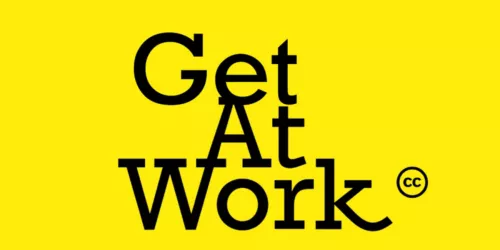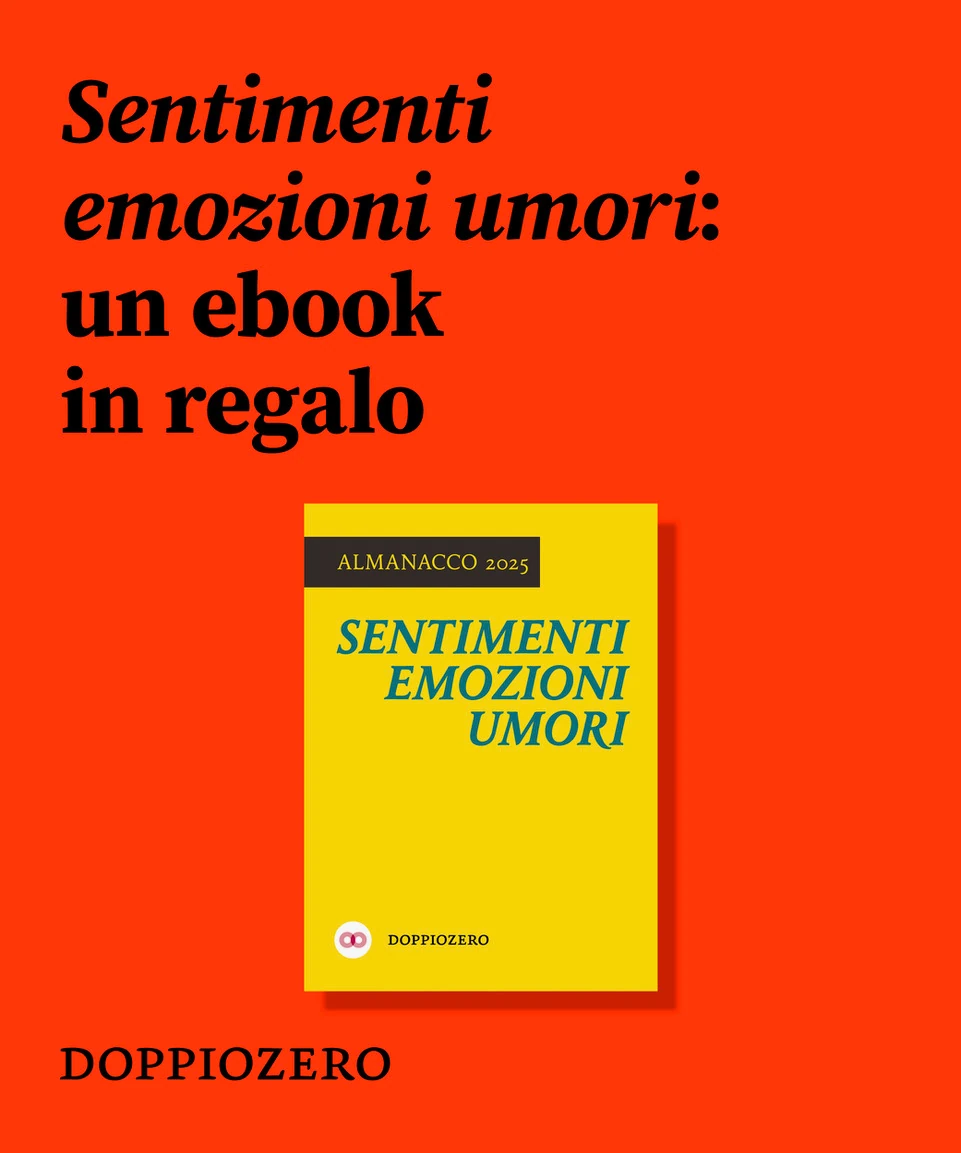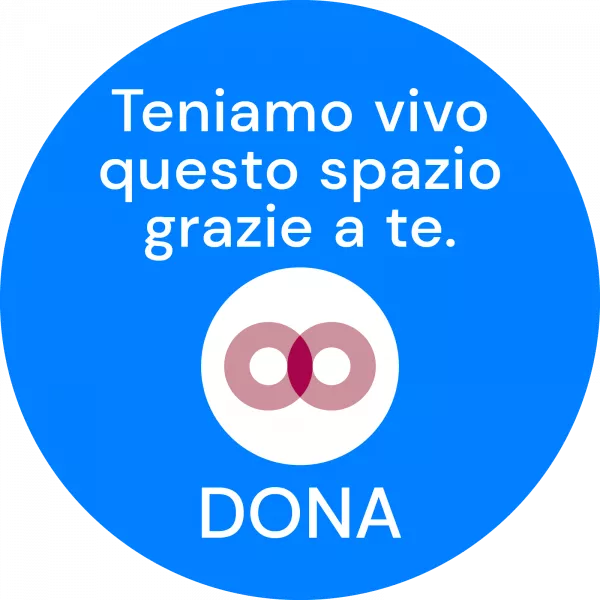Speciale
Thinking for yourself and within yourself
On April 27th upon the invitation by Art Basel for Non-Profit Visual Arts Organizations, we have launched our first crowdfunding campaign on Kickstarter to implement the sixth chapter of our itinerant educational artistic format AtWork.
The campaign is aimed to fund AtWork Addis Ababa, consisting of: a 5-day workshop for young Ethiopian art students and creative talents led by international curator Simon Njami and an exhibition of the created artworks at Addis Foto Fest in December 2016.
With your support, we can continue to offer AtWork experience to the students for free.
Join our crowdfunding campaign on Art Basel Kickstarter and contribute to nourishing a new generation of creative thinkers that can build the future we are all longing for!
lettera27
On the occasion of the campaign’s launch we are publishing Simon Njami’s text that poetically describes the vision behind our educational approach. Enjoy the reading and support our campaign here!
Thinking for yourself and within yourself
We, however, start from the beginning. We are poor, we have unlearned how to play. We have forgotten it, our hands have unlearned how to dabble.
(Ernst Bloch)
What Ernst Bloch is pointing out is our inability to create, our apathy and conformism. “We, however, start from the beginning,” with the arrogance of living in the present digital age, as if nothing ever existed before us. This is perhaps due to our education. We are actually led to believe that, after graduation, there is nothing else to learn. Yet, learning is a lifelong pursuit. It is not related to the academic knowledge provided by universities and other schools, but to something more organic, which in ancient times was transmitted by word of mouth in the rituals where the origin of the universe was revealed to us. It encompasses a whole lot of secrets that a university is unable to share, such as the art of bricolage. In 1891, while universities in the United States were about to reach a turning point that made them become what they are today, American philosopher Peirce defined university as “an association of men […] endowed and […] privileged by the state in order that the people may receive intellectual guidance, and that the theoretical problems which present themselves in the development of civilization may be resolved.” This statement clearly reveals the vanity of Peirce’s philosophy. If we look at our world, we can see that its theoretical problems, far from being resolved, have become more complex and inextricable; as if, instead of solving them, we only made them worse.

AtWork Kampala, photo by Solomon Okurut.
What AtWork is proposing is not the teaching of useless abstract theories based on vertical teacher-student relationships, but the idea of knowledge as a living thing. Knowledge is not an external element that comes to enlighten us. It is indeed recognition – that is, the realization of what is already inside us, hidden in our souls, without our knowing or conceptualizing it; in other words, it is the process of becoming aware of all the things we need to make sense of the visible and invisible world. We have nothing to teach anyone: “The light that permits encountering something other than the self, makes it encountered as if this thing came from the ego. The light, brightness, is intelligibility itself; making everything come from me, it reduces every experience to an element of reminiscence. Reason is alone. And in this sense knowledge never encounters anything truly other in the world” (Emmanuel Levinas). This inner light that belongs to everyone just asks to come out; and provided that we have the necessary intellectual and human tools, our role is to help this light reveal itself and flourish.
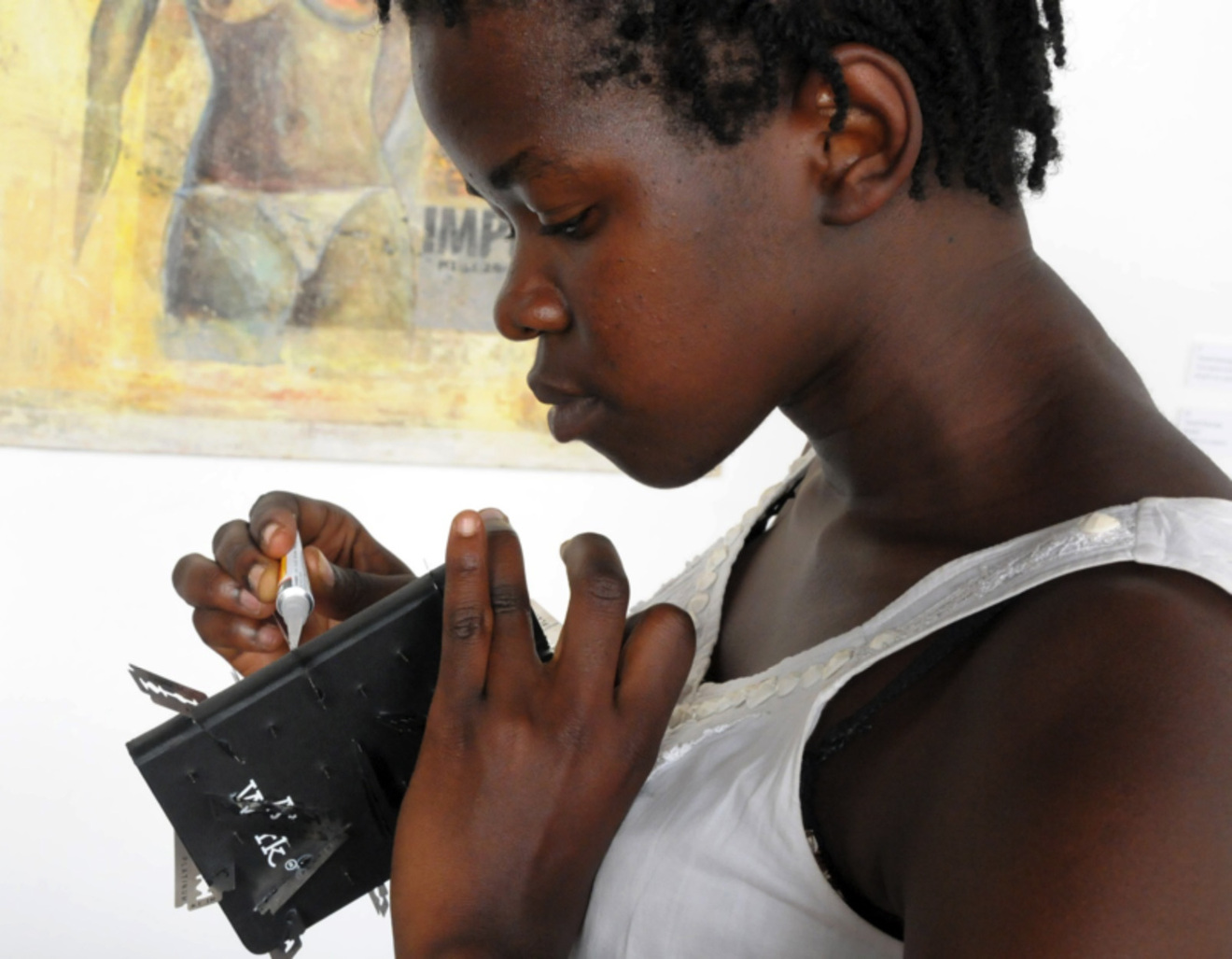
Immy Mali, AtWork Kampala participant, photo by Solomon Okurut.
Like any initiation experience, true learning is not a merely intellectual understanding shutting out our senses. It is rather the opposite: an intellectual understanding gained through our senses. Understanding is not quite the right word, though; we rather refer to a revelation of reality, the enrichment of our perception of reality, the transformation and enhancement of our experience of reality.
The characteristic elements of a given culture, geography and history have a prominent place in traditional teaching, sometimes preventing a broader understanding of the world. As a matter of fact, university is no longer an association of supposedly honorable individuals (universitas hominorum). It has become a military camp where students are taught how to win and prevail; an instrument used by nations to establish their power or improve their competitiveness. In this context, education is no longer a vehicle for providing individuals with tools for critical thinking. It is just a means of Darwinian selection and survival. There are actually other instruments that we wish to explore.
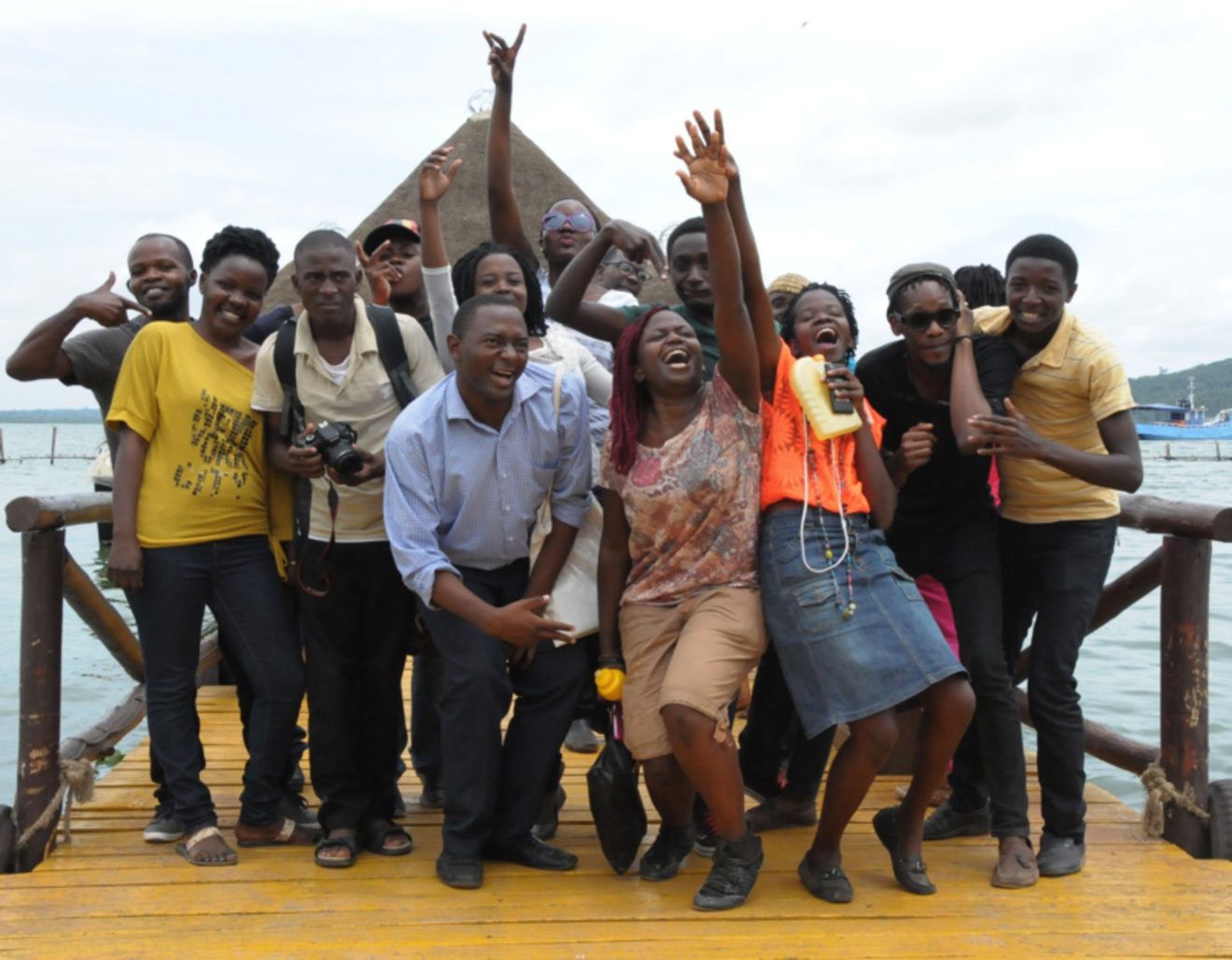
AtWork Kampala participants, photo by Solomon Okurut.
What we mean by education is contained in the etymology of the word, which refers to the action of guidance, of leading the way out of oneself to a world broader than the one we are usually exposed to. Therefore, our efforts are not directed to the establishment of a learning system based on a single transmitter (the teacher) and multiple receivers (the students), but to the creation of a system in which the power relationship is abolished, and only experimentation and what is commonly referred to as “knowledge sharing” are relevant, based on horizontal relationships. As a consequence, I see AtWork as a large, non-institutional university allowing the exchange of views, experiences and contexts. Our project does not intend to promote a univocal view of art theories and creativity, which is far from our intentions, but to establish a resonating environment where specific tools become pertinent even outside their original contexts. Therefore, we are not speaking of learning in the academic and traditional sense of the word, but of knowledge, exchanges and discoveries as sensible and human experiences, far from any presumption of objectivity. “The objectivity of rational knowledge takes away nothing from the solitary character of reason. The possible reversal of objectivity into subjectivity is the very theme of idealism, which is a philosophy of reason. Subjectivity is itself the objectivity of light. Every object can be spoken of in terms of consciousness – that is, can be brought to light” (Emmanuel Levinas).
AtWork intends to promote this kind of idealism that activates the solitary character of reason, helping individuals think for themselves and within themselves. We have long understood that there is no such thing as objectivity. There are only more or less explicit wills to power. The flame of reason is flickering. It is our responsibility to revive it. This is the ambition of our modest contribution.
Traduzione a cura di Laura Giacalone
With the support of 
